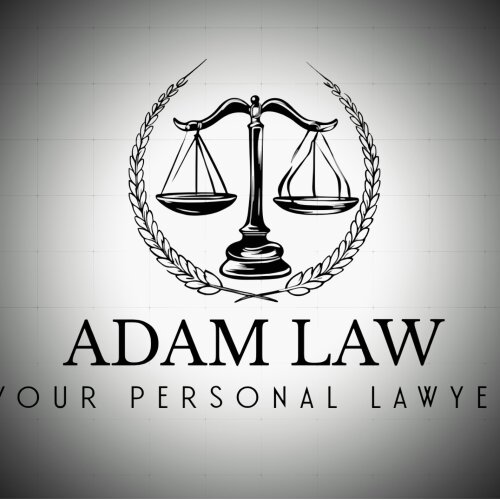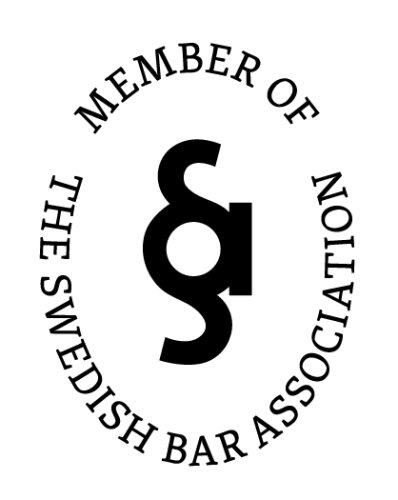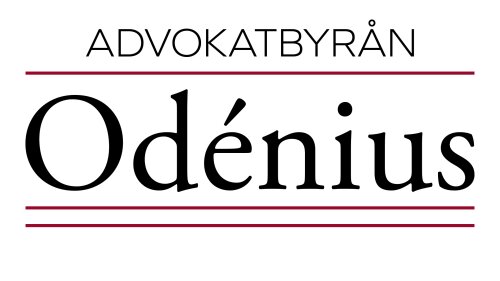
Best Commercial Litigation Lawyers in Sweden
Share your needs with us, get contacted by law firms.
Free. Takes 2 min.
Or refine your search by selecting a city:
List of the best lawyers in Sweden

About Commercial Litigation Law in Sweden
Commercial litigation in Sweden refers to the legal process of resolving disputes between businesses or commercial entities through the Swedish court system or alternative dispute resolution methods. This field encompasses a range of issues, including breach of contract, shareholder disputes, professional negligence, competition law matters, and more. Sweden has a robust and efficient legal system, which encourages settlements but also provides fair judicial proceedings should court litigation be necessary. The country is known for its impartial judiciary, transparent legal framework, and effective commercial dispute resolution mechanisms.
Why You May Need a Lawyer
Engaging a commercial litigation lawyer is crucial when faced with complex business disputes or when significant financial interests are at stake. Common situations where legal help may be required include:
- Breach of commercial contracts or agreements
- Disputes involving suppliers, customers, or business partners
- Claims of professional negligence or misrepresentation
- Intellectual property conflicts such as trademark or copyright infringement
- Unfair competition and antitrust issues
- Shareholder disagreements or partnership dissolution
- Cross-border commercial disputes involving international parties
A lawyer can provide strategic advice, represent your interests in negotiations and court proceedings, help you understand your rights and responsibilities under Swedish law, and work to achieve the most favorable outcome for your business.
Local Laws Overview
Swedish commercial litigation is primarily governed by the Swedish Code of Judicial Procedure (Rättegångsbalken) and the Contracts Act. The system is based on civil law principles, which emphasize written contracts and statutes. Key aspects include:
- Commercial disputes are generally heard in district courts (tingsrätt), with the Court of Appeal (hovrätt) and Supreme Court (Högsta domstolen) serving as appellate bodies.
- Swedish courts encourage parties to settle disputes amicably before or during proceedings.
- Legal proceedings usually involve written submissions and documentary evidence. Oral hearings are also common before the court renders a decision.
- Limitation periods for bringing actions are generally ten years unless a shorter period is set by law or contract.
- Costs are typically awarded to the prevailing party, which means the losing party may have to pay the winner's legal expenses.
- International commercial disputes may be subject to international agreements or EU regulations, which Sweden adheres to as an EU member.
In some cases, parties may opt for arbitration instead of litigation. Sweden is recognized as a leading jurisdiction for international arbitration, with the Arbitration Institute of the Stockholm Chamber of Commerce playing a significant role.
Frequently Asked Questions
What is the typical process for a commercial lawsuit in Sweden?
The process usually starts with a written statement of claim filed with the district court. The defendant responds, and both parties exchange written arguments and evidence. Oral hearings are then held, after which the court issues its judgment.
How long does commercial litigation take in Sweden?
The duration depends on the complexity of the case, but most commercial litigation cases in Sweden can take several months to a year or more from filing to judgment. Appeals can extend this timeline.
Can I recover my legal costs if I win?
Generally, the losing party is required to pay the successful party's legal costs; however, the amount is subject to the court's discretion and the reasonableness of the costs.
What if my dispute involves an international party?
Swedish courts can hear cases involving foreign parties, and international agreements or EU regulations may apply. It is common for international disputes to be handled via arbitration in Sweden.
Is arbitration required for commercial disputes in Sweden?
No, arbitration is not required unless the parties have agreed to it in a contract. If there is an arbitration clause, disputes must be resolved through arbitration instead of the courts.
Are court proceedings public in Sweden?
Most court proceedings are public. However, courts may restrict access to protect business secrets or sensitive information upon request and justified grounds.
What remedies are available in commercial litigation?
Common remedies include compensatory damages, orders for performance or specific actions, rescission of contracts, and in some cases, injunctions or declaratory relief.
How do I enforce a court judgment in Sweden?
Once a judgment is final, you can apply to the Swedish Enforcement Authority (Kronofogden) to assist in enforcing the decision, such as collecting monetary awards or seizing assets.
Does Swedish law require pre-trial mediation?
Pre-trial mediation is not mandatory, but courts encourage parties to settle before trial. Mediation or conciliation services may be recommended by the court.
Can a foreign company be sued in Sweden?
Yes, if the dispute has a sufficient connection to Sweden or Swedish law, a foreign company can be sued in Swedish courts.
Additional Resources
- Swedish Courts Administration (Sveriges Domstolar) - Provides information about the court system and proceedings and has resources available in English.
- Stockholm Chamber of Commerce (SCC) - Known for arbitration and dispute resolution services, especially in international matters.
- Swedish Bar Association (Advokatsamfundet) - Offers a directory of qualified lawyers specializing in commercial litigation.
- Swedish National Board for Consumer Disputes (ARN) - Handles some types of business-to-consumer disputes but not business-to-business commercial cases.
- Swedish Enforcement Authority (Kronofogden) - Responsible for enforcing court judgments and collecting debts.
Next Steps
If you are facing a commercial dispute in Sweden, it is advisable to consult with an experienced lawyer specializing in commercial litigation. Start by gathering all relevant contracts, correspondence, and evidence related to your dispute. Reach out to the Swedish Bar Association to find a qualified lawyer suited to your needs. Discuss your situation in detail and ask about potential strategies, timelines, costs, and possible outcomes. Be prepared to explore out-of-court solutions such as negotiation or mediation, as these can often resolve disputes more quickly and cost-effectively. If your case proceeds to court or arbitration, your lawyer will guide you through each step of the process to protect your interests.
Lawzana helps you find the best lawyers and law firms in Sweden through a curated and pre-screened list of qualified legal professionals. Our platform offers rankings and detailed profiles of attorneys and law firms, allowing you to compare based on practice areas, including Commercial Litigation, experience, and client feedback.
Each profile includes a description of the firm's areas of practice, client reviews, team members and partners, year of establishment, spoken languages, office locations, contact information, social media presence, and any published articles or resources. Most firms on our platform speak English and are experienced in both local and international legal matters.
Get a quote from top-rated law firms in Sweden — quickly, securely, and without unnecessary hassle.
Disclaimer:
The information provided on this page is for general informational purposes only and does not constitute legal advice. While we strive to ensure the accuracy and relevance of the content, legal information may change over time, and interpretations of the law can vary. You should always consult with a qualified legal professional for advice specific to your situation.
We disclaim all liability for actions taken or not taken based on the content of this page. If you believe any information is incorrect or outdated, please contact us, and we will review and update it where appropriate.
Browse commercial litigation law firms by city in Sweden
Refine your search by selecting a city.
















